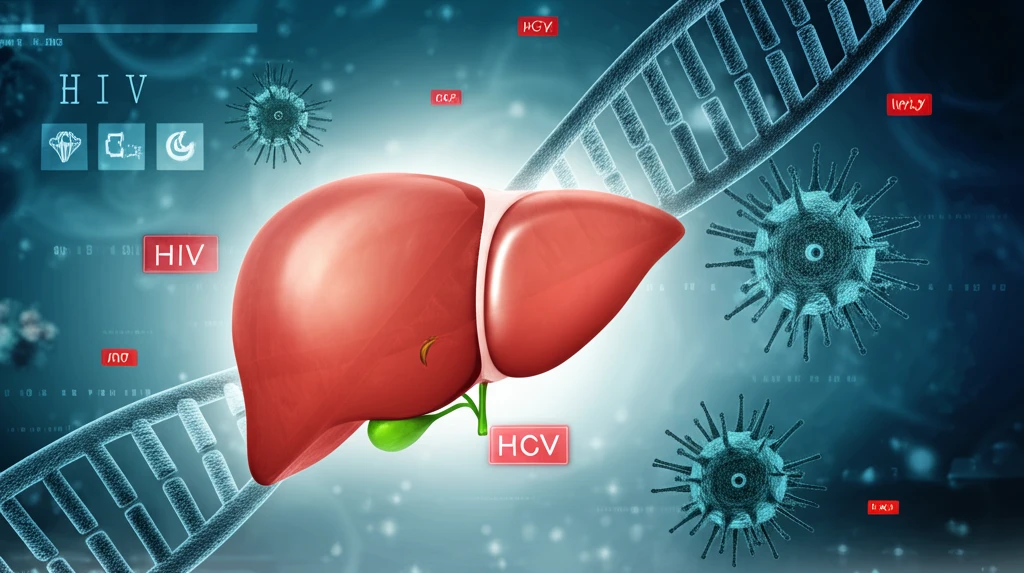
Decoding Liver Health: How Your Genes Influence HIV/HCV Coinfection Outcomes
"A groundbreaking study reveals the critical role of TNFAIP3 genetic variants in liver disease severity for HIV/HCV-coinfected patients, paving the way for personalized treatment strategies."
For individuals navigating the complexities of HIV and Hepatitis C (HCV) coinfection, understanding the factors that influence liver health is paramount. Chronic liver inflammation and fibrosis are significant concerns, potentially leading to cirrhosis and increasing the risk of liver cancer. While lifestyle and treatment adherence play crucial roles, emerging research highlights the importance of genetics in determining disease progression.
A recent study published in Infection, Genetics and Evolution delves into the genetic underpinnings of liver disease severity in HIV/HCV-coinfected patients. The researchers focused on variations in the TNFAIP3 gene, a key regulator of inflammation and immune responses. This gene is known to have a protective role in the liver, and variations in its sequence can impact its function, potentially influencing the course of liver disease.
The study's findings reveal a compelling link between specific TNFAIP3 genetic variants and the severity of liver fibrosis and inflammation. These insights not only enhance our understanding of the disease mechanisms at play but also open avenues for developing personalized treatment strategies tailored to an individual's genetic profile.
Unlocking the Genetic Code: How TNFAIP3 Impacts Liver Disease

The study enrolled 215 HIV/HCV-coinfected patients who underwent liver biopsies, providing a comprehensive dataset for analysis. Researchers used a sophisticated genotyping technique to identify variations in three specific regions (SNPs) of the TNFAIP3 gene: rs675520, rs9376293, and rs6920220. They then correlated these genetic variations with various indicators of liver disease, including:
- Liver Fibrosis (Metavir Score): Assessment of liver damage, ranging from no fibrosis (F0) to cirrhosis (F4).
- Non-Invasive Indexes (FIB-4, APRI): Blood tests used to estimate liver fibrosis.
- Inflammation-Related Biomarkers: Measurements of leptin, NGF, sFas, MIF, TIMP1, and MMP2, which reflect the level of inflammation in the body.
Implications for Future Treatment Strategies
This study provides valuable insights into the genetic factors that influence liver disease severity in HIV/HCV-coinfected individuals. By identifying specific TNFAIP3 variants associated with increased or decreased risk of fibrosis and inflammation, researchers are paving the way for more personalized and effective treatment strategies. Further research is needed to validate these findings in larger and more diverse populations, but the potential for tailoring treatment based on an individual's genetic profile holds great promise for improving outcomes for those living with HIV/HCV coinfection.
